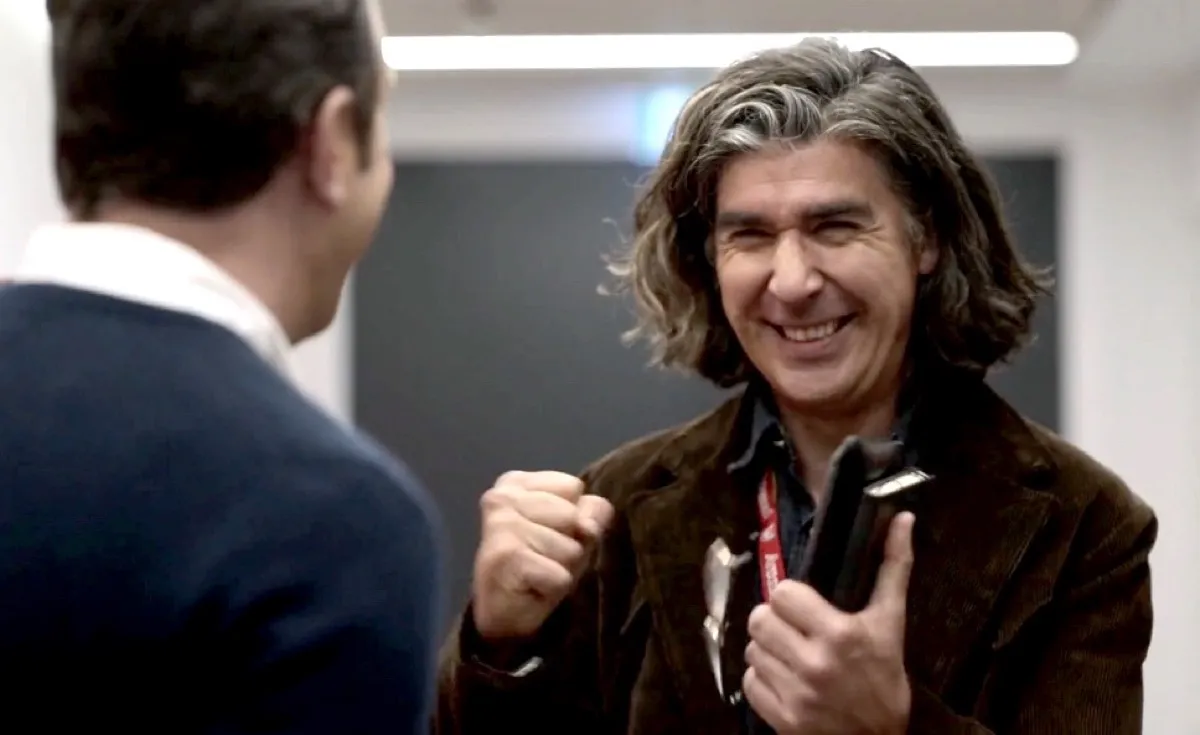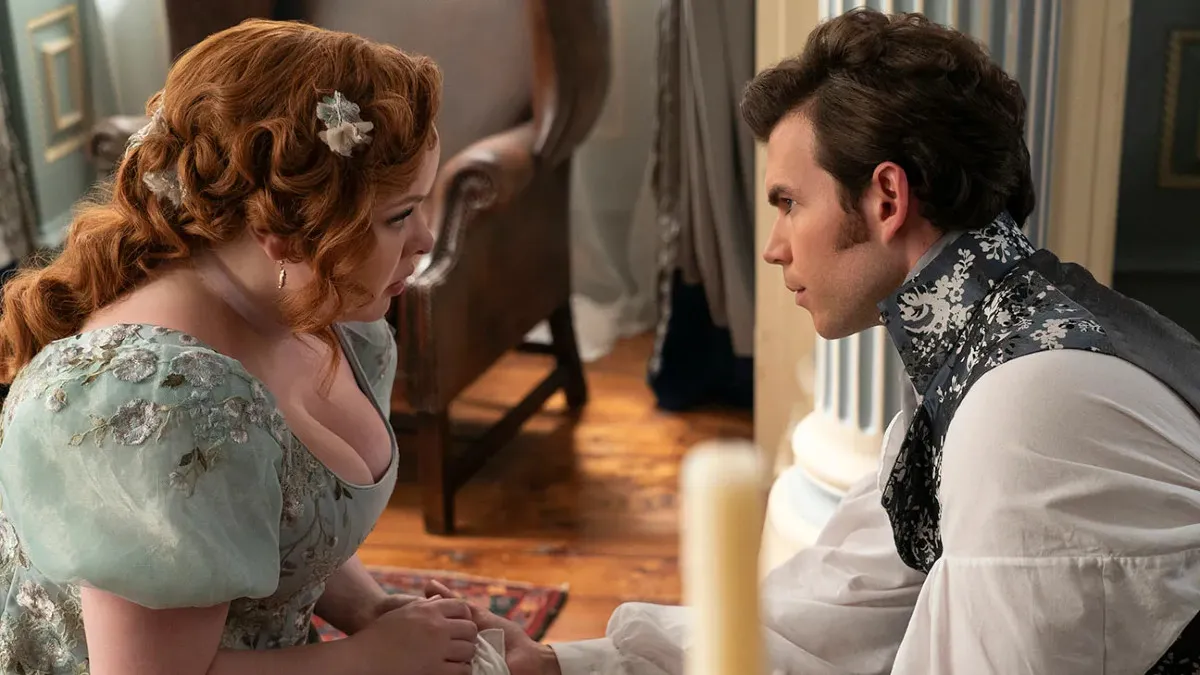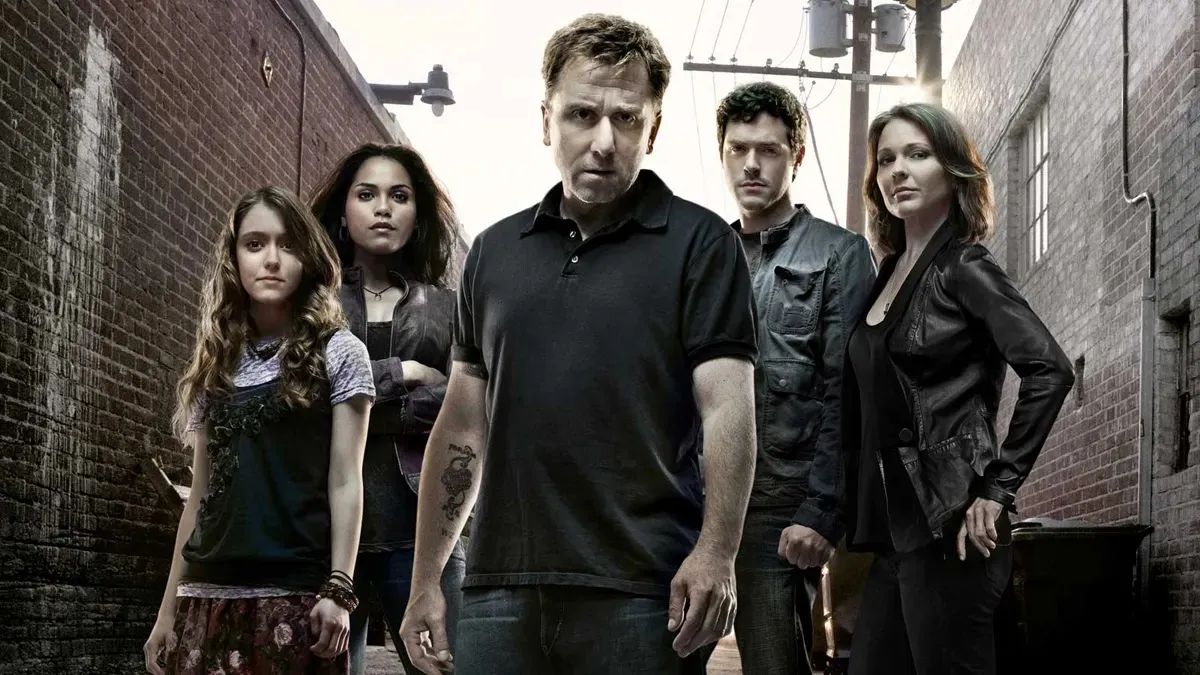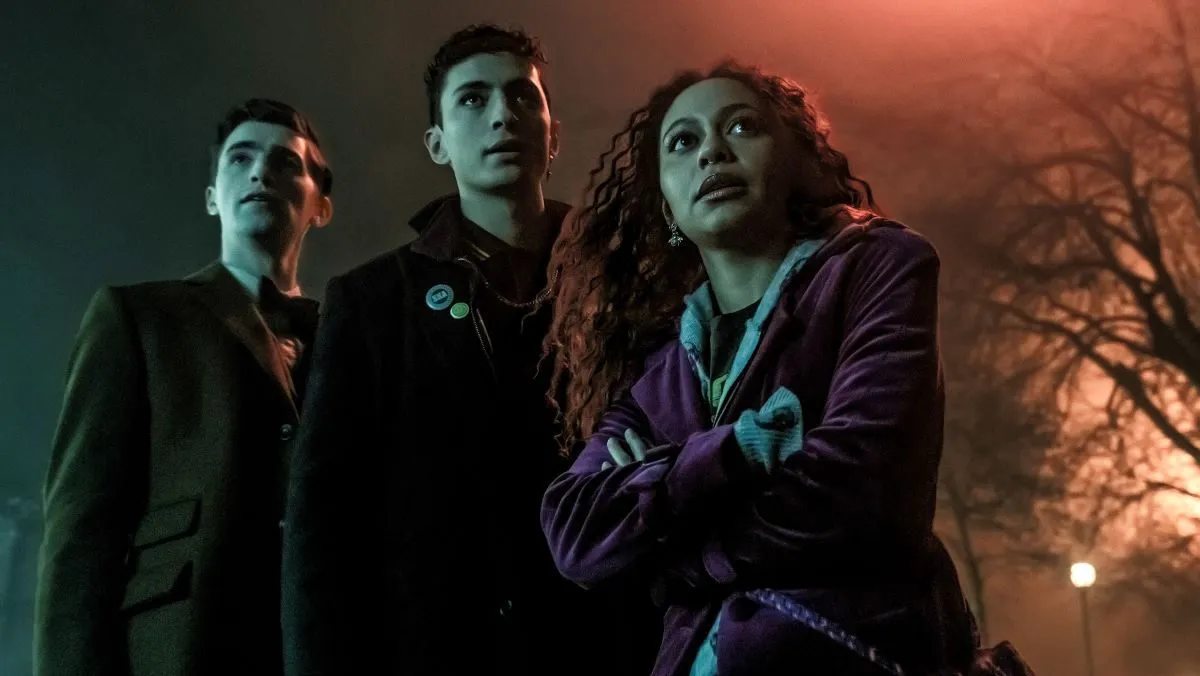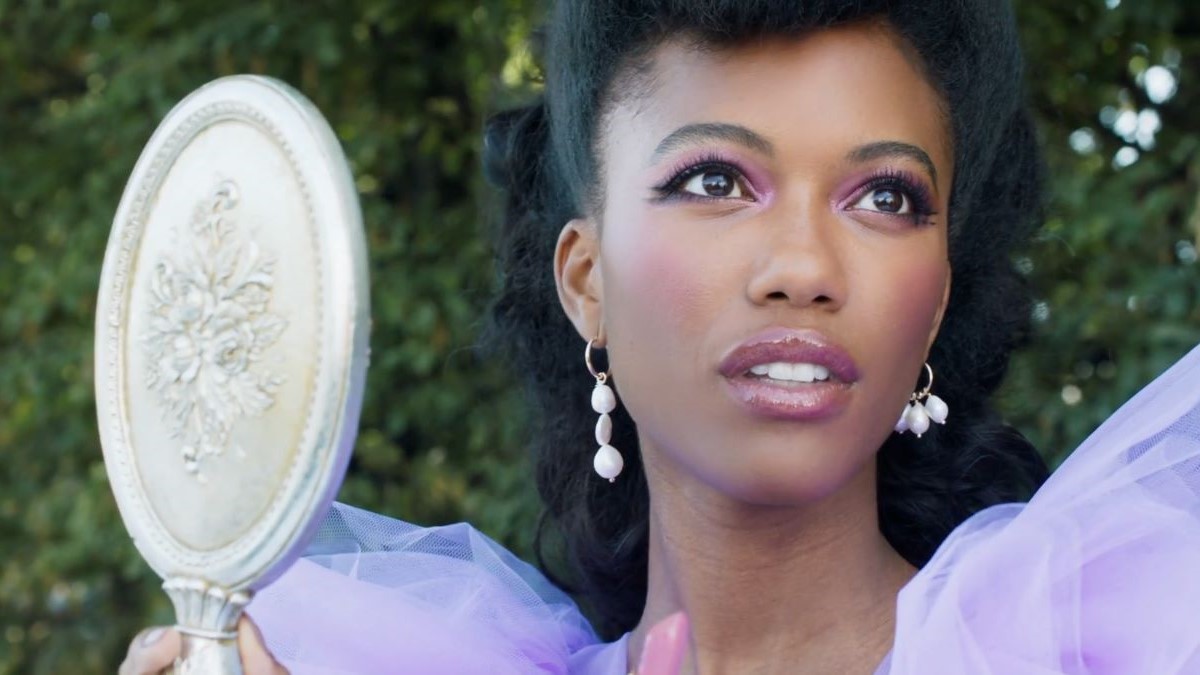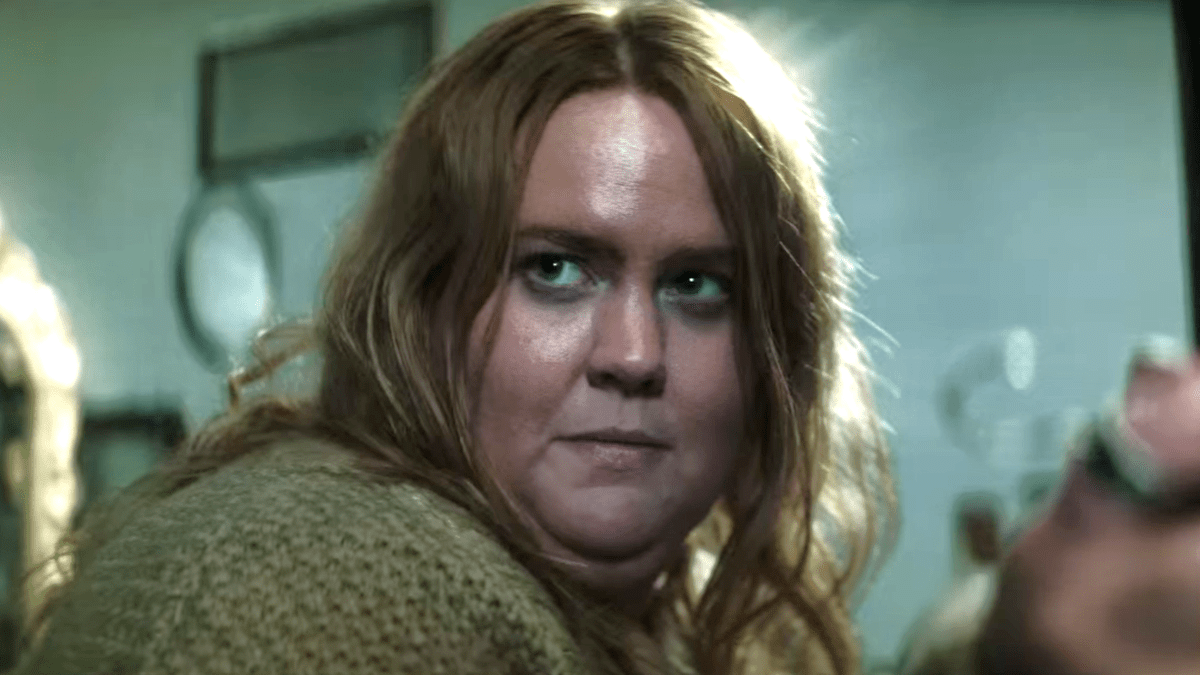Back in season one of Apple TV+’s Ted Lasso, if you were looking for a word to describe Trent Crimm, “dork” probably wouldn’t have been one of them. Severe? Sure. Calculating? Certainly. A stone cold, Uber-critical, vulturesque bloodhound of a journalist always sniffing around for a story? Absolutely. That’s what makes recent developments so rewarding.
When we first meet Trent Crimm on Ted Lasso, he epitomizes the English press (and public’s) ire for Ted and his rootin’-tootin’ American ways. At Ted’s very first press conference, it’s Trent who takes the first swing at him in the press room: “Is this a f*cking joke?” Despite getting a few small moments of warmth, Trent Crimm spends most of the first two seasons of Ted Lasso still filling the role of the cynical journalist always ready and willing to ask the hard questions. But as rocky as Ted Lasso season three may be, one of its masterstrokes is finally taking the time to not just explore Trent Crimm as a character, but get to the root of what makes him so fascinating: the fact that underneath it all, he really is just a big dork.
Outside of his eponymous episode in season one—”Trent Crimm, The Independent”—James Lance’s snappily dressed journalist doesn’t have a significant presence on Ted Lasso until the very end of season two, when he texts Ted that Nate had come to him about Ted’s panic attacks—therefore burning his source and committing a massive journalistic faux-pas. After giving Ted a warning about the article he would publish the next day, detailing the panic attack, Trent then turns around and tells his boss at The Independent what he’s done, which, of course, leads to his firing. As Trent tells Ted in the season two finale, he isn’t all that broken up about losing his job as a journalist, instead saying that he’s looking for “something different, deeper.”
It’s the first step Trent takes towards getting a little Lasso magic worked on him (as so many others, like Jamie, Rebecca, Roy, and Higgins, have), but the past two episodes of Ted Lasso (episode seven, “The Strings that Bind Us,” and episode eight, “We’ll Never Have Paris”) have finally given us some insight into the why of how a stone-cold killer of a journalist would torch his prestigious career and follow a football team around to write a book about their unlikely Coach. The answer? Trent Crimm is just as in love with Ted Lasso as the rest of us, and he’s finally working up the courage to show it.
Okay, maybe “in love” is a bit of an overstatement (at least, for now), but if there’s anything episode seven showed us, it’s that Trent Crimm’s affinity for Ted and his pervasively positive coaching style has always been there, even when he was tossing curveballs at Ted in the press room. We get glimpses of Trent’s fascination with ted in the aformentioned season one episode “Trent Crimm, The Independent,” when Ted and Trent go out to dinner, dining on obscenely spicy food because Ted wants to make the owner look good in front of his family.
Trent is baffled by Ted’s willingness to torch his taste buds for a man he barely knows and is even further stupefied when, at the end of the meal, Ted tells him, “I really enjoyed getting to spend this time with you.” After spending the whole episode looking for a way to get Ted to crack, Trent finally understands: “You really mean that, don’t you?”
Though it’s difficult for him (and so many other cynical Brits on the show) to wrap his head around the idea that Ted might genuinely just be a positive, kindhearted person who cares about making a positive change in the lives of people around him, Trent, for no small amount of time, fully understands the power of Ted’s coaching methods. Granted, he has still kept the pressure on in the press room, but as the first two seasons chug along, there’s a very clear flustered warmth to Trent’s expression whenever he’s asking questions—he still needs to do his job, but he has a genuine reverence for Ted and his coaching method.
So, fast forward to the end of season two, where Trent makes the call to warn Ted of the article he’s writing—true, he does still write the article, but for someone at his level in the press to give it all up for someone he barely knows is a major character moment.
As season three has progressed, we’ve gotten more and more little crumbs (Crimm Crumbs, if you will) about Trent’s life: the Amsterdam-centric “Sunflowers” gave us a wonderfully sweet coming out storyline with Colin, where Trent acts as a queer mentor, and episode two, “I Don’t Wanna Go To Chelsea,” sees Trent and Roy finally resolve their seemingly decades-long beef. But we still haven’t really been able to explore why Trent has stuck around the club so loyally, or why he thinks there’s a “story worth telling” at Richmond—that is, until an unforgettably unexpected scene at the end of episode seven.
After Ted is able to successfully implement his “total football” strategy on the pitch, Trent literally bursts through the locker room doors and rushes over to him, rambling an excited, impassioned speech about how “The Lasso Way” is real, and that Ted’s total football strategy is going to work.
This image of Trent, wildly gesticulating with a goofy grin about the power of the “Lasso Way,” is the polar opposite of the Trent we first met in the series premiere—yet, at the same time, this feels like a natural, inevitable progression for the character. It isn’t that Ted has suddenly turned Trent into a different person, it’s that Trent has fostered this admiration for Ted and his coaching style across seasons, but is finally growing close enough with Ted and the Richmond coaching staff to feel comfortable telling them.
During his season 3, episode 2 conversation with Roy, Trent explains that early in his career, he often wrote overly-harsh articles to try to make a name for himself—that harsh, critical exterior was a means to an end that covered up a much softer, earnest personality underneath.
Between his rainbow mugs, his excited outpourings of belief in Ted, and his recent induction into the Diamond Dogs (at last!), we’re finally getting to see the real Trent Crimm—and yes, he may be sarcastic and sharp to the core, but he’s also utterly dorky, and all the more lovable for it. With just four episodes left in the season (and possibly the series), there’s no telling where Ted Lasso will take Trent Crimm, but his ascension to the roster of series mainstays is without question one of the best things to come out of season three.
(featured image: Apple TV+)



